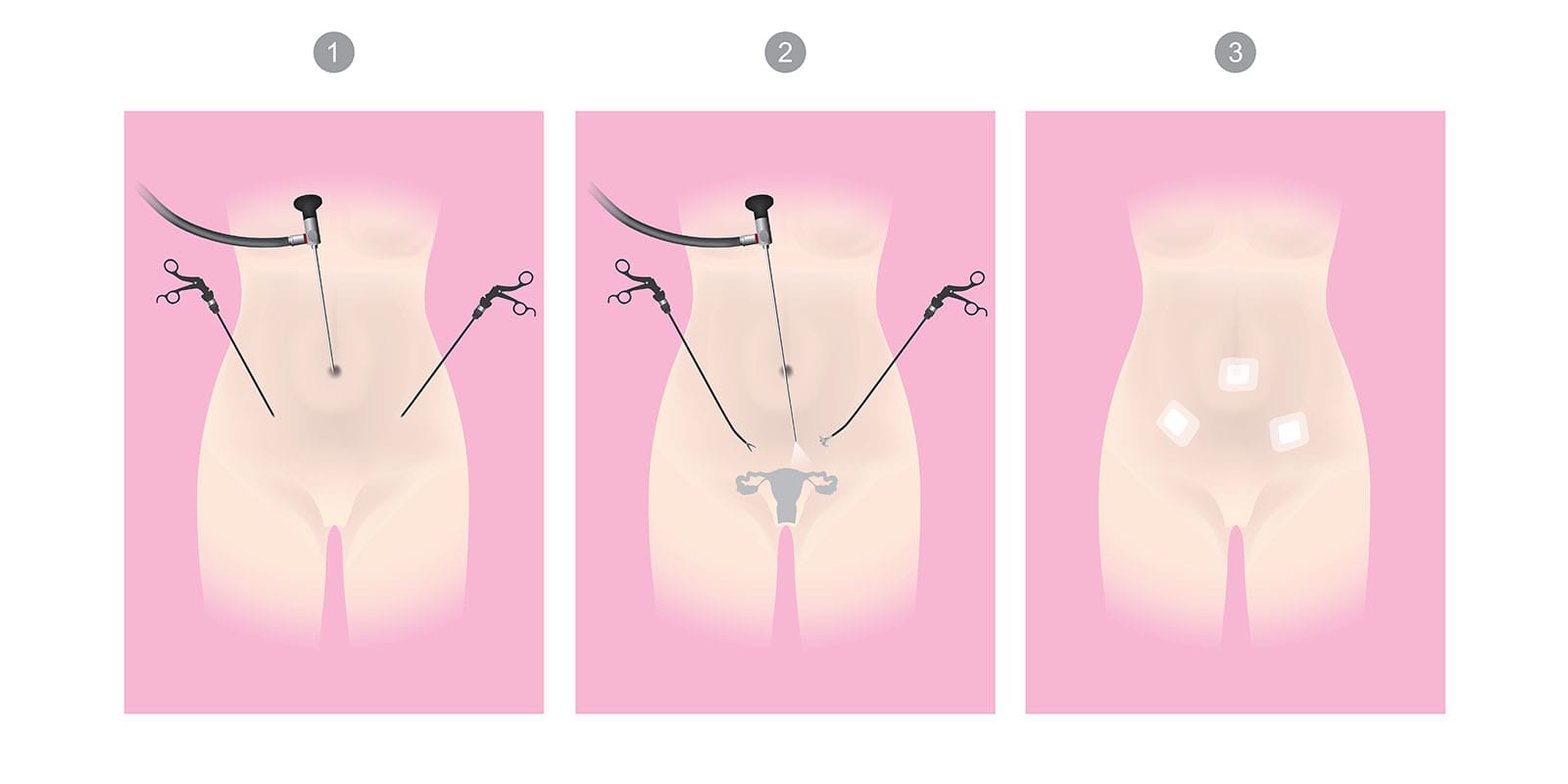What are the different types of hysterectomy?
Depending on the indication but also taking into account the patient's wishes, we can perform:
- Total hysterectomy with appendages (radical hysterectomy): the uterus, fallopian tubes, and both ovaries are removed
- Simple total hysterectomy: only the uterus and cervix are removed
- Subtotal hysterectomy (or partial hysterectomy): the upper part of the uterus is removed, preserving the cervix
Depending on the surgical technique followed, the hysterectomy can be:
- Abdominal hysterectomy: The surgery is done with the classic large incision in the abdomen
- Vaginal hysterectomy: The surgery is performed through the vagina and the uterus is removed through the vagina
- Laparoscopic hysterectomy: When the intervention is done from 3-4 small holes we make in the abdomen to pass our tools
Frequently Asked Questions about Hysterectomy
- Will I have a period after surgery?
After a hysterectomy, you will no longer have menstruation, as we remove the uterus.
- Is my fertility affected by the hysterectomy?
Pregnancy is no longer possible after the uterus has been removed.
- Will anything change in relation to my hormones?
Only if it is necessary to remove your ovaries will you have reduced hormone production (surgical menopause). Your doctor may recommend hormone replacement therapy to address any symptoms related to hormonal changes.
- How will my sexual life be affected?
Although the removal of the uterus does not affect the ability to have sex, some women may experience changes in sexual function after a hysterectomy, especially if the ovaries are removed and hormone production stops. This varies from woman to woman and has a psychological background beyond hormonal.
- What is the recovery time after a hysterectomy?
If you have laparoscopic surgery, you will be discharged the next day. Usually, patients can return to mild activities within a week and return to work after 2-3 weeks. The recovery time for more intense activity and exercise may last 4-6 weeks. It is important to note that this timeline may be different for each individual and it is important to listen to your body and not to push yourself too much.
Laparoscopic Hysterectomy
The laparoscopy is the most modern and suitable way of performing a hysterectomy. It is a minimally invasive surgery, with which we treat many diseases of the abdominal and pelvic organs.
Laparoscopy has many benefits compared to open surgical intervention, traditionally used for hysterectomy, such as:
- Less pain and less need for medication
- Shorter hospital stay
- Faster recovery time
- Smaller incisions and fewer scars
- Reduced risk of complications, such as infection and bleeding
- Faster return to normal activities and work
How will we help you?
If you have already been diagnosed with a disease, the treatment of which requires the removal of the uterus, or if you have already received non-surgical treatment for a gynecological disease without success, it is important to visit us.
If you have cancer, hysterectomy may be the only option for treatment. For other diseases, we will inform you about your options, taking into account the following:
- To what extent do the symptoms of the disease affect your daily life and your overall quality of life?
- Why may other treatment options not be effective?
- To what extent are you prepared for menopause or for the fact that you will not be able to become pregnant after the operation?
In any case, we will be by your side, explaining the entire process of the hysterectomy step-by-step, and answering all your questions before and after the surgery.
If you have been recommended abdominal hysterectomy through open surgery, it is important to visit us, in order to receive correct information about hysterectomy through laparoscopy and its advantages.


